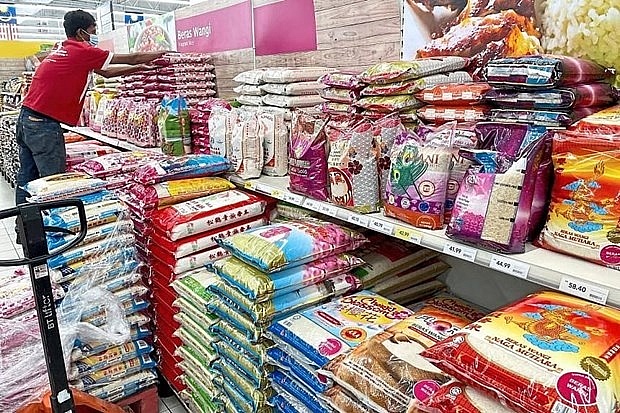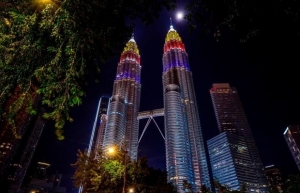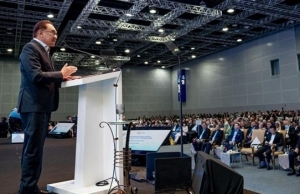Malaysia strives to meet domestic rice demand
 |
| Malaysia strives to meet domestic rice demand, Illustrative image (Source: The Star) |
Kuala Lumpur – Malaysia’s Ministry of Agriculture and Food Security (KPKM) is confident that white rice production in the country will recover within a month through the Special Local White Rice Programme.
Speaking at a press conference after surveying the supply of local white rice at Giant supermarket in Tampoi (Johor state) on September 5, KPKM Minister Mohamad Sabu said several intervention steps have been taken through the programme, including directing rice millers to increase production by 20% as a short-term measure.
A number of engagement sessions with padi industry stakeholders will be held on September 7 to discuss methods and mechanisms for the recovery of rice production, he went on, adding that KPKM will clarify the methods and mechanisms with regard to the supply of local rice in the country, covering medium- to long-term solutions through these engagement sessions.
Mohamad said the ministry’s earlier initiatives, such as the Mini Sekinchan Smart Big Scale Padi Field project, are expected to help in the recovery of local rice production as the project can produce a massive harvest of 11 tonnes of padi per hectare.
Statistics from KPKM showed that the supply of local white rice is sufficient and has been maintained at the controlled price of 2.60 RM (about 56 US cents) per kilogramme since 2008, reflecting the ministry’s efforts to restore rice production are in line with increased demand, following the hike in the price of imported rice.
Due to the impact of India's decision to ban rice exports last July, the price of imported rice in the Malaysian market has increased from 2,350 RM per tonne to 3,200 RM per tonne, equivalent to an increase by 36% since September 1.
As rice produced in Malaysia only meets 70% of its demand, the country imports around 800,000 tonnes of rice annually from such countries as India, Vietnam, and Thailand and Pakistan.
 | Malaysia attracts foreign investment through friendly approach Malaysia is expected to receive more investments going forward, supported by investors’ confidence in the Madani Economy framework and from offshoots from existing investments, said Malaysia Semiconductor Industry Association (MSIA). |
 | Malaysia to allocate 430 million USD for energy transition Malaysia will allocate 2 billion ringgit (430 million USD) to a National Energy Transition Facility to enable catalytic blended finance, Prime Minister Anwar Ibrahim announced on August 29. |
What the stars mean:
★ Poor ★ ★ Promising ★★★ Good ★★★★ Very good ★★★★★ Exceptional
Related Contents
Latest News
More News
- France supports Vietnam’s growing role in international arena: French Ambassador (January 25, 2026 | 10:11)
- Foreign leaders extend congratulations to Party General Secretary To Lam (January 25, 2026 | 10:01)
- Russian President congratulates Vietnamese Party leader during phone talks (January 25, 2026 | 09:58)
- Worldwide congratulations underscore confidence in Vietnam’s 14th Party Congress (January 23, 2026 | 09:02)
- Political parties, organisations, int’l friends send congratulations to 14th National Party Congress (January 22, 2026 | 09:33)
- 14th National Party Congress: Japanese media highlight Vietnam’s growth targets (January 21, 2026 | 09:46)
- 14th National Party Congress: Driving force for Vietnam to continue renewal, innovation, breakthroughs (January 21, 2026 | 09:42)
- Vietnam remains spiritual support for progressive forces: Colombian party leader (January 21, 2026 | 08:00)
- Int'l media provides large coverage of 14th National Party Congress's first working day (January 20, 2026 | 09:09)
- Vietnamese firms win top honours at ASEAN Digital Awards (January 16, 2026 | 16:45)

 Tag:
Tag:



















 Mobile Version
Mobile Version